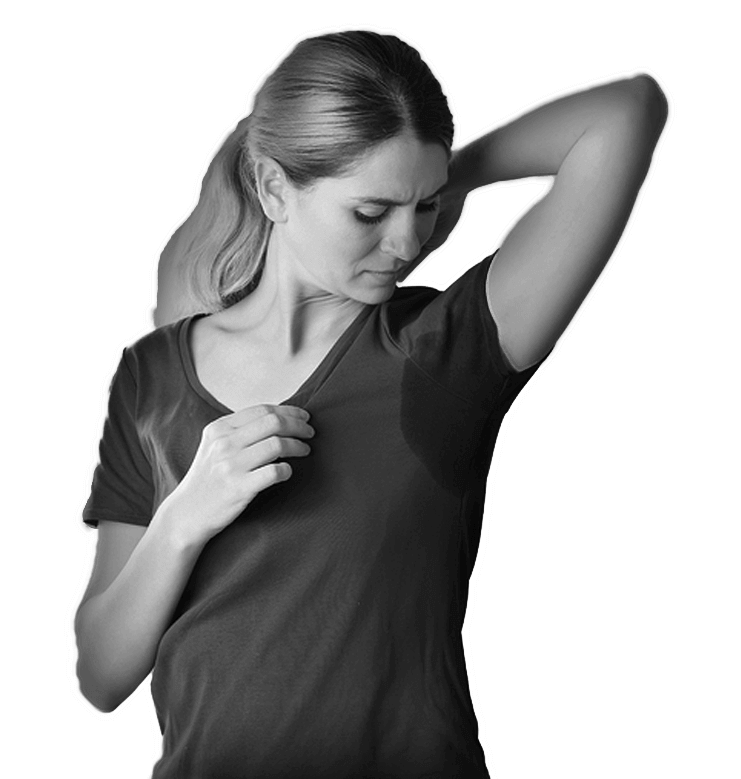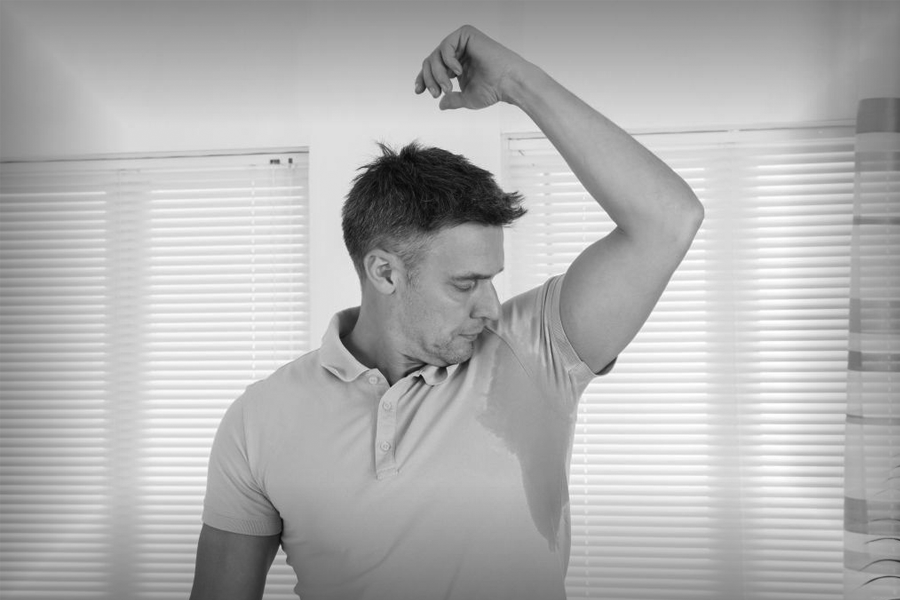
Hyperhidrosis (Excessive Sweating) Treatment
Hyperhidrosis is a condition that results in excessive sweating. The sweating can occur anytime and in unusual situations which do not warrant sweating, such as in cooler weather and it can also occur without any trigger at all. Medical conditions such as hyperthyroidism or the menopause can be causes of hyperhidrosis as well.
There are a lot of individuals who suffer from hyperhidrosis but the majority of them do not seek out treatment because they do not realize that it is a treatable medical condition.
Although sweating is a natural response to certain situations such as intense physical activity, warm weather, stress and certain emotional states, with hyperhidrosis you can sweat more than usual and for no apparent reason. There are different types of hyperhidrosis and each type can determine the underlying cause of the excessive sweating.
- Primary focal hyperhidrosis: With this type of hyperhidrosis, the sweating mainly occurs on your underarms, hands, head, face and feet. It usually starts in childhood and about 30 to 50 percent of individuals with this type have a family history of excessive sweating.
- Secondary generalized hyperhidrosis: This type is caused by an underlying medical condition or it can be a side effect of certain medications. It usually starts in adulthood and you can sweat in just one area or all over your body. You might also sweat during your sleep. Conditions that cause this type of hyperhidrosis include:
- cancer
- heart disease
- adrenal gland disorders
- stroke
- menopause
- hyperthyroidism
- lung disease
- spinal cord injuries
- Parkinson’s disease
- infectious diseases such as HIV or tuberculosis
The Recovery
Why would one need treatment for excessive sweating?
Symptoms of hyperhidrosis (excessive sweating) include:
- Excessive sweating for no apparent reason that has been occurring for the last six months
- Sweating on both sides of your body in roughly the same amount
- Excessive sweating incidents at least once a week
- Sweating that interferes with your daily activities such as relationships or work
- Excessive sweating that began when you were younger
- Constantly sweating in your sleep
- A family history of hyperhidrosis

Excessive Sweating Treatment
There are several treatment options for hyperhidrosis:
- Specialized antiperspirant: You may be prescribed an antiperspirant containing chloride by your doctor. It is generally stronger than those available over the counter and is often used in treating mild cases of hyperhidrosis.
- Iontophoresis: This is a procedure that uses a device to deliver low-level electrical currents while you’re submerged in water. The currents are delivered to your feet, hands or armpits to temporarily block your sweating glands.
- Anticholinergic drugs: These types of drugs can offer relief for generalized sweating. They prevent acetylcholine – a chemical that is produced in your body to help stimulate your sweat glands – from working. The drugs take about two weeks to work and may cause side effects such as dizziness and constipation.
- Botox (botulinum toxin): Botox injections are sometimes used to treat hyperhidrosis. They work by blocking the nerves that stimulate the sweat glands. Before the treatment is effective, you’ll need several injections.
- Surgery: Surgery can help treat sweating on your armpits. One of the procedures involves removing sweat glands in your armpits. Another technique is to sever the nerves that carry messages to your sweat glands by undergoing an endoscopic thoracic sympathectomy.
The Results of the Treatment
Your doctor will be able to help you develop a treatment plan for primary focal hyperhidrosis so as to manage your symptoms.
Hyperhidrosis caused by an underlying condition may go away once the condition is treated.
Book a consultation with Dr Ali Razzak, leading Family Medicine Consultant and Aesthetics Expert in Dubai to know your options, cost and the next steps.
- Address The Residences at Marina Gate 1 King’s College Hospital, Dubai Marina
- Email bookings.mmc@kch.ae
- Phone +971 04 581 3222
- WhatsApp +971 50 839 5920

